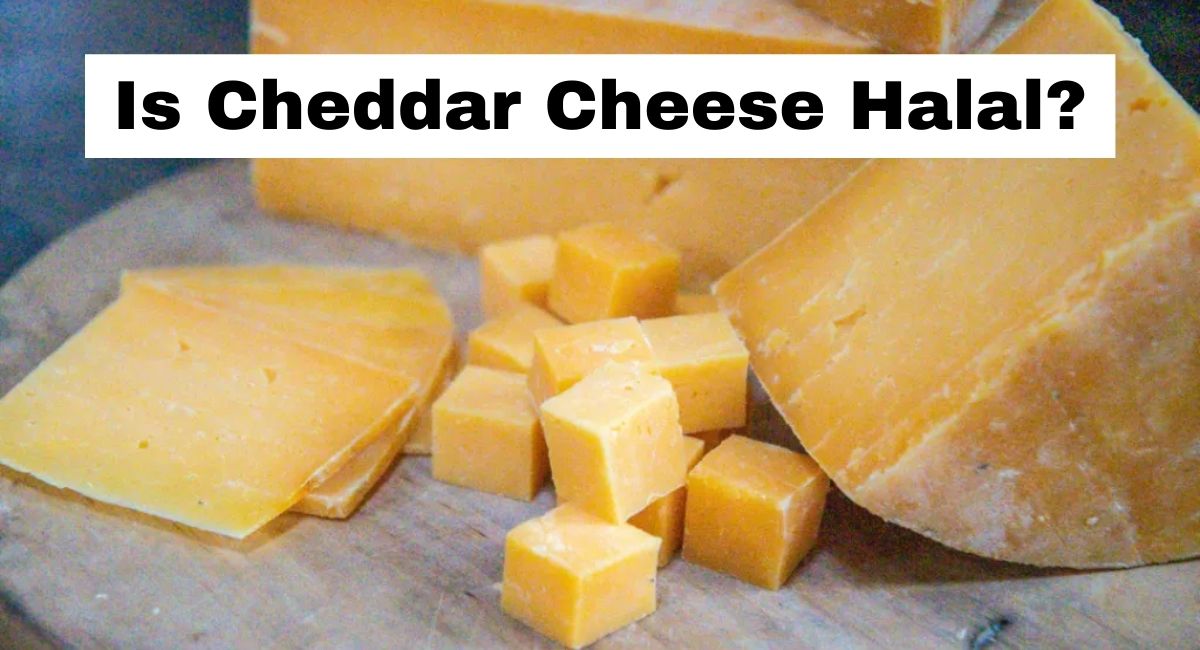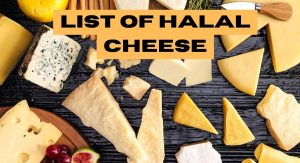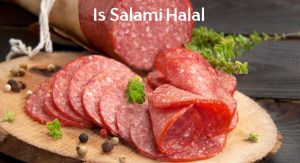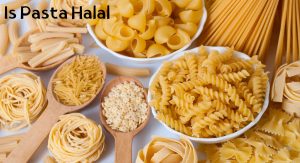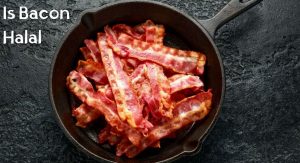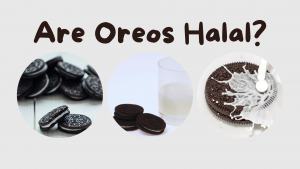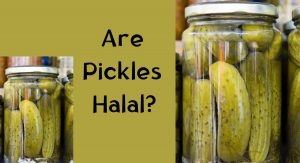Is cheddar cheese halal? This is a question that is becoming increasingly important for Muslims and others who follow the Islamic faith around the world. With so much confusion surrounding food ingredients, it is essential to understand what is allowed and what is not when it comes to eating according to Islamic law. In this blog post, we will explore if cheddar cheese is halal and examine all of the different factors that go into making this determination.
In this blog, we will find the answers to whether is Cheddar Cheese halal or not and look at the fat content, animal rennet, and the enzymes used in its production. We will also focus on other considerations to help us make an informed decision. By the end of this post, you should have a better understanding of is cheddar cheese halal or not. Let’s get started!
About Cheddar Cheese
Cheddar cheese is one of the most popular and widely consumed cheeses in the world. It originated in England but is now produced in many countries around the world. Cheddar cheese has a distinctive flavour and texture that comes from its production process. Traditionally, cheddar is made using unpasteurized cow’s milk, which gives it its unique tangy flavour. It is then aged for several months or even years in high humidity and temperatures to bring out its sharp, earthy notes. As it ages, the cheese develops a harder texture and its flavour intensifies.
Cheddar comes in a variety of textures depending on its age. Young cheddar has a softer texture and milder flavour, while aged cheddar has a harder texture and sharper flavour. Cheddar can also come in various colours such as white, yellow, or orange. The colour is determined by the type of annatto food colouring used during the cheese production process.
Cheddar cheese can be eaten on its own or cooked into dishes for added flavour. It is commonly used in grilled cheese sandwiches, macaroni and cheese, salads, burgers, and soups. Additionally, cheddar can be melted on top of dishes like nachos to create a creamy and delicious topping.
Cheddar cheese is also a great source of essential vitamins, minerals and proteins. It contains high amounts of calcium, phosphorus, and B vitamins that help with bone health. Cheddar also contains a good amount of vitamin A which is important for healthy vision and skin.
In summary, cheddar cheese is an essential part of many diets due to its unique flavour and wide range of uses in the kitchen. It provides essential nutrients and minerals to help maintain healthy bones and skin, making it a great addition to any meal. Whether you enjoy it on its own or as an ingredient in a dish, cheddar cheese is sure to add a delicious kick of flavour!
What Is Cheddar Cheese Made Of?
Cheddar cheese is most commonly made from cow’s milk, but can also be made from sheep or goat’s milk. The ingredients that makeup cheddar cheese include:
- Milk
- Starter culture (a specific combination of lactic acid bacteria)
- Salt
- Rennet (an enzyme found in the stomachs of young animals that helps with digestion)
- Calcium chloride (a chemical compound used to improve cheese texture)
- Annatto (a food colourant derived from achiote plant seeds)
- Microbial enzymes for flavour development
Types of Cheddar Cheese
Cheddar cheese is a popular variety of cheese that comes in different types and flavors. Below are some of the different types of cheddar cheese:
- Mild Cheddar – This type of cheddar cheese is aged for 3 to 6 months and has a mild taste.
- Sharp Cheddar – This type of cheddar cheese is aged for 9 to 12 months and has a sharper taste than mild cheddar.
- Extra Sharp Cheddar – This type of cheddar cheese is aged for up to two years and has a very sharp and tangy taste. Some extra sharp cheddars can even be aged for up to 10 years or more.
- Vintage Cheddar – This is the strongest of the cheddar varieties and is aged for a minimum of 12 months up to 2 years old. It is crumbly, bitey, and even saltier than other types of cheddar cheese.
- Wisconsin Cheddar – A bright yellow cheese with a creamy texture, made in the Wisconsin state.
The difference in taste between mild, sharp, and extra sharp cheddar cheese comes down to aging. The longer the cheese ages, the more intense the flavor becomes. Cheddar cheese can be paired with wine, such as cabernet sauvignon, pinot noir, chianti, or syrah, and even higher proof tastings like bourbon or single malt scotch.
It’s worth noting that cheddar cheese can come in different colors, ranging from off-white to orange. Some manufacturers add coloring agents like annatto to give cheddar cheese a yellow or orange hue. Additionally, cheddar cheese is a good source of calcium, vitamin A, phosphorus, zinc, selenium, and riboflavin.
Related Read: American cheese is a widely popular cheese variant in the United States that has a distinct creamy texture and mild flavor. It is a versatile cheese that can be used in various dishes, including sandwiches, burgers, and mac and cheese. However, for individuals following halal dietary guidelines, the question arises, “is American cheese halal?” This is because halal guidelines prohibit the consumption of certain ingredients commonly used in cheese production. On our blog, we explore the topic of American cheese and whether or not it meets the halal requirements.
Process Of Making Cheddar Cheese
Cheddar cheese is made from cow’s milk and involves several steps that give it its unique flavor and texture. According to the sources, the process of making cheddar cheese typically involves the following steps:
- Milk Preparation: Raw milk is typically heated to around 86°F (30°C) before adding a starter culture that helps to acidify the milk.
- Pasteurization: The milk is then heated to a higher temperature, typically around 145-155°F (63-68°C), to kill off any harmful bacteria.
- Adding Rennet: The milk is cooled to around 86°F (30°C) and rennet is added to curdle the milk. After the milk has curdled, it is cut into small cubes to release the whey.
- Cheddaring: The curds are then stacked and turned repeatedly to remove additional whey and help develop the characteristic flavor and texture of cheddar cheese.
- Salting: Once the curds have reached the desired acidity, they are salted to help preserve the cheese and add flavor.
- Pressing and Aging: The curds are then pressed into molds and aged for several months to several years depending on the desired flavor and texture. During aging, the cheese develops its distinct sharpness and flavor.
Additional steps may be involved in making cheddar cheese depending on the recipe and the cheesemaker’s preferences. It’s also important to note that variations in the process and ingredients can result in different types of cheddar cheese, such as mild, sharp, extra sharp, or vintage.
Ingredients Explained With Halal Or Haram Status (Source Included)
| Ingredient | What it is | Halal or Haram Status |
|---|---|---|
| Milk | Milk is an important ingredient for making cheddar cheese. It is a nutrient-rich liquid that comes from cows, goats, sheep and other mammals. Milk contains proteins, vitamins, minerals, fats and carbohydrates that are essential for human health. | Halal (Source) |
| Starter culture | Starter culture, also known as “fermenting flora” or “microbial inoculant”, is a type of microorganism typically used in the production of cheddar cheese. It has beneficial effects on the flavour and texture of the finished product, as well as increasing its shelf life. | Halal (Source) |
| Rennet | Rennet is an enzyme complex used in the production of cheddar cheese. It helps to coagulate the milk proteins into curds, which are then separated from the whey. Rennet also helps to give the cheese its characteristic flavour and texture. | Unclear (Source) |
| Calcium chloride | Calcium chloride is a chemical compound composed of calcium and chlorine, with the formula CaCl2. It is commonly used as a food additive in many processed foods, including cheddar cheese. In the production of cheddar cheese, calcium chloride helps to improve coagulation, reduce curing time and enhance flavour and texture. | Halal (Source) |
| Annatto | Annatto is a natural food dye made from the seeds of the achiote tree (Bixa Orellana) native to tropical regions of South America. It is used in making cheddar cheese for its distinctive orange colour, as well as for its earthy, sweet and peppery flavour. | Halal (Source) |
| Microbial enzymes | Microbial enzymes are proteins produced by microorganisms that act as catalysts to speed up biochemical reactions. These enzymes are essential in food production, especially the production of cheese. | Halal (Source) |
Does Cheddar Cheese Have Rennet?
Cheddar cheese is a type of hard, cow’s milk cheese that originated in the area around Cheddar Gorge in Somerset, England. It is one of the most popular types of cheese and is widely used worldwide in a variety of dishes. But does cheddar cheese contain rennet?
The answer is yes. Rennet is a type of enzyme that is used to help with the coagulation process in cheese making. It is traditionally produced from the fourth stomachs of slaughtered calves and other young ruminants. Rennet also helps give cheddar its distinctive texture, flavour, and colour.
Not all types of cheddar cheese contain rennet, however. Some manufacturers may use microbial rennet, which is derived from a fungus or bacteria and is suitable for vegetarians or those observing religious dietary restrictions. Many supermarkets also stock vegetarian versions of cheddar cheese that are free from animal-derived rennet.
Ultimately, it depends on the manufacturer as to whether or not their cheddar cheese contains rennet. To be sure, look at the ingredients label or contact the manufacturer directly to determine if their product contains rennet.
In conclusion, most cheddar cheese does contain rennet, although vegetarian and other animal-free versions are available on the market. It is always best to check with your manufacturer before buying any cheddar cheese to ensure you are getting the type of product that is compliant with your dietary requirements.
Is Rennet Haram?
The answer to this question depends on the type of rennet used. Rennet is an enzyme used in cheese-making and it can be derived from either plant or animal sources. Plant-based rennet is generally considered to be halal, as it does not involve any animal products or byproducts. Animal-based rennet, on the other hand, is not considered to be halal in Islam. Animal-based rennet involves the use of enzymes from the stomachs of slaughtered animals, which is not permitted by Islamic law.
The type of rennet used should be clearly indicated when purchasing products containing it. Many cheese manufacturers are now using plant-based rennet, which is not only halal but also vegetarian-friendly. However, some cheese products still use animal-based rennet, so it’s important to be aware of this when making a purchase.
Ultimately, whether or not rennet is haram depends on the type used. Islamic law permits the consumption of plant-based rennet, but not animal-based rennet. It is important to read labels carefully and be aware of the type of rennet used in order to make an informed choice about products containing it. By doing so, Muslims can ensure that their diet remains compliant with Islamic Law.
In conclusion, while plant-derived rennet is considered halal, animal-based rennet is not. Therefore, it is important to read labels carefully and ensure that the type of rennet used in a product is plant-based in order to remain compliant with Islamic law. With this information in mind, Muslims should feel confident about making informed choices when purchasing products containing rennet. In summary, the answer to the question “Is rennet haram?” is yes – if it is animal-based. Otherwise, plant-based rennet is considered halal and permissible for consumption in Islam.
Does Cheddar Cheese Have Enzymes?
Yes, Cheddar cheese does have enzymes. Enzymes are proteins that act as catalysts in the chemical reactions of food production. Specifically, they are used to break down complex molecules, such as the proteins and fats found in milk, into simpler substances like amino acids and fatty acids. In cheddar cheese production, two types of enzymes are used: renin and lipase.
Rennin is a milk-clotting enzyme that helps separate the curds from the whey during cheese production, while lipase promotes flavour development by breaking down fatty acids into smaller molecules that produce more intense flavours. As such, these enzymes are critical for achieving the desired taste and texture of cheddar cheese. Ultimately, without enzymes, cheddar cheese would not have its signature flavour and texture.
In addition to providing flavour and texture, enzymes also play a role in the ageing process of cheese. During the maturation period, enzymes break down proteins and fats into smaller molecules that contribute to the complexity of cheddar’s taste. As such, it is important for manufacturers to carefully monitor the enzyme levels during this crucial step.
Related Read: Parmesan cheese is a popular and widely used ingredient in many cuisines around the world. It is a hard and granular cheese that originated in Italy and is known for its distinct nutty and savory flavor. However, for those who follow a halal diet, there may be some concerns about whether or not Parmesan cheese is permissible to consume. This has led to the question, is Parmesan Cheese haram. On our blog, we explore what Parmesan cheese is, its ingredients, and whether or not it is considered halal.
Are Enzymes Haram?
The use of enzymes in food and beverage production has raised questions among Muslim communities as to whether they are permissible according to Islamic law or Haram. To answer this, it is important to consider the ingredients used in enzyme production and how they may be classified under Islamic law.
Enzymes are typically produced from either animal or plant sources. Those that come from animal sources use materials like pancreatic extracts and eggs, while those derived from plants can utilize bacteria and fungi. In terms of Islamic law, enzymes made from animal sources are considered Haram, as the source is not permissible according to religious teachings. However, enzymes produced using plant-based ingredients are generally allowed as they do not contain any Haram components or ingredients.
In addition to the source, enzymes must also be carefully monitored for halal certification. This includes looking at the processing methods used and ensuring that no other haram ingredients are added during production. Furthermore, it is important that enzymes are stored and handled in accordance with Islamic dietary laws and regulations.
Overall, it is important to note that enzymes used in food and beverage production must be carefully examined in terms of their source and processing methods. If the enzymes are derived from a permissible source and handled according to Islamic dietary laws and regulations, they can generally be considered halal. Therefore, it is acceptable to use these enzymes in food production as long as they are certified halal.
The final determination of whether enzymes are considered haram or not should be made by consulting an Islamic scholar, since only religious authorities can make a definitive ruling on the matter. Additionally, it is important to make sure that any products containing enzymes are carefully monitored for halal certification to ensure their safety and compliance with Islamic law.
In conclusion, enzymes can be used in food production as long as they are derived from a permissible source and handled according to Islamic dietary laws and regulations. It is important to ensure that any products containing enzymes are thoroughly examined for halal certification before being used so that they can be safely consumed according to Islamic teachings. Ultimately, a definitive ruling from an Islamic scholar should be consulted in order to determine whether enzymes are truly permissible according to religious law.
Halal or Haram Status of Different Cheddar Cheese Brands
| Brand | Product Name | Status |
|---|---|---|
| Tropical | Sharp Cheddar Cheese | Haram |
| Polly-O | Shredded Cheddar Cheese | Haram |
| Nabisco | Cheddar Cheese Spread | Haram |
| Nabisco | Cheddar Cheese in Bacon | Haram |
| Nabisco | Sharp Cheddar Cheese Spread | Haram |
| Land’O Lakes | Cheddar Cheese | Haram |
| Land’O Lakes | Extra Sharp Cheddar Cheese | Haram |
| Kraft | Natural Cheddar Cheese | Haram |
| Kraft | Sharp White Reduced Fat Cheddar Cheese | Haram |
| Kraft | Mild Reduced Fat Cheddar Cheese | Haram |
| Kraft | Sharp Reduced Fat Cheddar Cheese | Haram |
| Kraft | Mild Imitation Cheddar Cheese | Haram |
| Kraft | Chipotle White Cheddar Cheese | Haram |
| Kraft | Jalapeno White Cheddar Cheese | Haram |
| Kraft | Sharp Cheddar Cheese | Haram |
| Velveeta | Shredded Fat Free Cheddar Cheese | Haram |
| Velveeta | Shredded Sharp Cheddar Cheese | Haram |
| Velveeta | Sharp Cheddar Cheese Slices | Haram |
| Keyfood | Shredded Sharp Cheddar Cheese | Haram |
| Keyfood | Shredded Cheddar Cheese | Haram |
| Hotel Bar | Cheddar Cheese | Haram |
| Hotel Bar | Mild Cheddar Cheese | Haram |
| Hotel Bar | Sharp Cheddar Cheese | Haram |
| Heluva Goods | Cheddar Cheese | Haram |
| Friendship | Cheddar Cheese | Halal |
| Fine Fare | Cheddar Cheese | Haram |
| C-Town | Cheddar Cheese | Haram |
| C-Town | White Cheddar Cheese | Haram |
| C-Town | Sharp Cheddar Cheese | Haram |
| C-Town | Extra Sharp Cheddar Cheese | Haram |
| C-Town | Mild Cheddar Cheese | Haram |
| C-Town | No Salt Cheddar Cheese | Haram |
| C-Town | Colored Cheddar Cheese | Haram |
| Kirkland Signature | All Natural Shredded Mild Cheddar Cheese | Haram |
| Kirkland Signature | Natural Cheddar Cheese | Haram |
| Kirkland Signature | All Natural Sharp Cheddar Cheese | Haram |
| Sargento | Ultra Thin Mild Cheddar Cheese | Haram |
| Sargento | Reduced Fat Sharp Cheddar Cheese | Haram |
| Sargento | Cheddar Mozzarella Cheese | Haram |
| Sargento | Cheddar Jack Cheese | Haram |
| Sargento | Extra Sharp Cheddar Cheese | Haram |
| Great Value | Sharp Cheddar Cheese | Haram |
| Cabot | Sharp Extra Light Cheddar Cheese | Haram |
| Tillamook | Kosher Medium Cheddar Cheese | Halal |
| Sharp Cheddar Cheese | Cabot Creamary | Halal |
Frequently Asked Questions (FAQs)
Is Cheddar Cheese Halal In The USA?
The answer to this question is complicated and depends on multiple factors. In the United States, cheese made from cow’s milk, including cheddar cheese, is generally considered halal if the production process adheres to Islamic law. This means that all ingredients must be permissible according to Islamic dietary guidelines and the animal must have been slaughtered in accordance with Islamic guidelines. Additionally, any equipment used in the production or packaging of cheddar cheese must be halal-certified and free from contact with haram (forbidden) products.
Is Cheddar Cheese Halal In The UK?
Cheddar cheese is a popular staple food in the United Kingdom, but many British Muslims have wondered whether it is halal or not. The answer to this question depends on the type of cheddar cheese and the method by which it was produced. In general, traditional cheddar cheeses made using rennet and other animal products are not considered halal. However, some cheese producers offer vegan versions of cheddar cheese that are acceptable for consumption. The most important factor to consider when determining whether or not a cheddar cheese is halal is the source of the rennet used during production
Is Cheddar Cheese Halal In India?
In India, the answer to this question varies depending on which type of cheddar cheese you are referring to. While some varieties of cheddar cheese are made with animal rennet, others may be halal-friendly as they are made with microbial rennets derived from fermentation or vegetable sources. Therefore, it is important to check the ingredients list of the particular cheddar cheese product you are considering before determining if it is halal or not. Additionally, certain brands may be certified halal, which would make them suitable for consumption by those following a strict halal diet. Ultimately, whether cheddar cheese is considered halal in India depends on the type and brand that you buy.
Is Cheddar Cheese Halal?- Final Thought
The answer to this question depends on the ingredients used to make the cheese. According to Islamic dietary laws, animals must be slaughtered in a humane way and their blood completely drained away before they can be eaten. If the ingredients used to make the cheddar cheese are from sources that follow these guidelines, then the cheese is considered halal.
In addition, some Muslims may also choose not to eat cheese that contains animal-derived rennet. Rennet is an enzyme used in the traditional process of making cheese and is typically extracted from calf stomachs. If the cheddar cheese does not contain this ingredient, then it will be considered halal for those Muslims who do not consume animal-derived rennet.
For Muslims who want to be sure that the cheddar cheese they are eating is halal, it is important to read the ingredient label and make sure that all ingredients meet the Islamic dietary guidelines. For example, if the cheese contains animal-derived rennet, then it would not be considered halal for Muslims who do not consume this type of ingredient.
In conclusion, cheddar cheese can be considered halal if it is made from ingredients that meet Islamic dietary laws. It is important for Muslims to read the ingredient label and make sure all ingredients are permissible before consuming the cheese. With careful consideration, it is possible for Muslims to enjoy cheddar cheese as part of their diet in a way that is in line with their beliefs.
